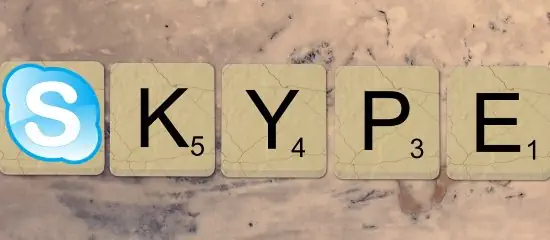Is it true that us soldiers can’t make video calls while in camp?

Yes, deployed soldiers are generally allowed to use platforms like Skype, Facebook Messenger, or FaceTime to stay in touch with family, friends, and acquaintances during their international missions. All they need for a video call is a smartphone or a device with a webcam.
Even service members stationed in challenging environments like Yemen or Iraq can make video and phone calls, as well as use computers. They are permitted to communicate via any available media, provided operational security guidelines are followed.

Soldiers stationed in a foreign country sounds normal. Scammers use situations like that by pretending to be soldiers in a bad situation.
The Whole Story:
Have you started using online dating apps to meet new people and find love? If so you may have unknowingly exposed yourself to scammers hiding in the virtual world.
Imagine meeting someone online who claims to be a brave U.S. soldier serving overseas. They’re charming, attentive, and seem perfect – until they start asking for money. Military romance scams are on the rise, and understanding how they work could save you from heartbreak and financial loss.
Connecting with someone who claims to be serving as an U.S. military member in Afghanistan or Africa sounds like a dream come true. They’ll send many photos to build trust but conveniently avoid video calls.
At first it seems harmless. You could find yourself wanting to learn more about this person, even sharing personal details like your address or phone number.
But be warned: Romance scammers posing as U.S. servicemen are real and growing. They don’t just operate on dating sites; they’re also on:
If someone claiming to be in the military refuses your requests for a video call on Skype or another platform multiple times, it’s a big red flag.
Financial Requests: How Scammers Exploit Victims
One of the most common tactics used by scammers posing as soldiers is requesting money under various pretences. These requests often come with emotionally charged stories designed to manipulate victims into sending funds. For example, scammers may claim they need money for:
- Medical expenses, despite U.S. soldiers having access to free healthcare.
- Travel costs for leave or to visit family, even though the military covers such arrangements.
- Internet fees to stay in touch, despite soldiers having access to free communication tools.
- Fiancé or visa fees to bring a loved one to their location, a common tactic to exploit trust.
Scammers also use emotional manipulation to pressure victims, such as creating a false sense of urgency or sharing fabricated stories of hardship to evoke sympathy. To protect yourself, be wary of any financial requests, no matter how convincing they may seem.
If you’ve already shared financial information, take immediate action by freezing accounts, reporting the scam to authorities, and seeking professional assistance. By understanding these tactics, you can better recognize and avoid falling victim to financial scams.
You should note here that the U.S. Army fully covers its soldiers’ medical care, travel, and other essential needs. These services are provided free of charge throughout their service. Furthermore, soldiers have access to free communication tools, including video conferencing.
Military Romance Scams: How Scammers Exploit Trust
Military romance scams are a specific type of imposter scam where fraudsters pose as U.S. service members to exploit individuals emotionally and financially.
These scammers often create fake profiles on dating apps or social media, using stolen photos and fabricated stories about being deployed overseas or serving in high-risk missions. They build trust by establishing a false sense of intimacy, often claiming a “special connection” or expressing love quickly to manipulate their victims.
Once trust is established, they request money for fabricated reasons, such as emergency travel expenses, medical bills, or even fees to access their bank accounts. Victims are often targeted based on their vulnerability, such as a desire for companionship or admiration for the military. By understanding the psychological manipulation techniques—like emotional appeals and fabricated urgency—and recognizing the red flags, such as requests for gift cards or sensitive information, individuals can better protect themselves from falling victim to these devastating scams.
Common Scam Tactics Include:
- Requesting wire transfers to specific bank accounts
- Asking for gift cards (Google Play, Amazon, Steam, or iTunes)
- Asking victims to accept or deliver unknown packages to specific locations
In one case, a scammer claimed to be a Marine serving in Syria and sent photos of himself in uniform. He quickly professed his love, but avoided video calls, citing poor Internet connectivity. Over time, he requested money for a “medical emergency,” only to ask for more money after the funds were sent.

Soldiers can use Skype or other video chat platforms. Claims of being on a ‘secret mission’ that forbids such communication are baseless—if that were true, all contact would be strictly prohibited.
Communication Challenges: U.S. Soldiers Are Allowed to Use Skype
Is it true that U.S. soldiers can’t make video calls while in camp? No, that’s a myth.
If someone claims they can’t use Skype due to “military rules,” they’re likely trying to scam you.
A genuine deployed soldier stationed far from home is unlikely to spend time on dating sites to meet strangers. Instead, they would use Skype or other communication tools to stay in touch with loved ones. The U.S. Army ensures that deployed personnel have access to the necessary technical infrastructure, including reliable Internet connections.
When discussing whether U.S. soldiers can make video calls while in camp, it’s crucial to address the communication challenges that scammers exploit. These challenges often serve as red flags for identifying fraudulent behaviour.
Scammers manipulate communication methods to maintain control over their victims, making it difficult for them to verify the authenticity of the person they’re interacting with.
1. Scammers’ Control over Communication Methods
Scammers often provide a direct phone number to build trust but never answer calls. This tactic allows them to control the flow of communication, ensuring they can manipulate the narrative without being directly confronted.
For example, they might claim to be too busy or in a location with poor reception, making it impossible to answer calls. This behaviour is a significant red flag, as genuine soldiers typically have access to reliable communication methods, even in remote locations.
If someone claiming to be a soldier avoids answering calls or only communicates sporadically, it’s a strong indication of a scam.
2. Moving Conversations to Less Regulated Platforms
Another common tactic scammers use is to move conversations to less regulated platforms like WhatsApp or Telegram. These platforms offer a higher degree of anonymity and are harder to trace, making it easier for scammers to avoid detection.
By shifting communication to these apps, scammers can continue their schemes without the risk of being reported or tracked.
3. Claiming Inability to Receive Mail
Scammers often claim they cannot receive mail, citing military restrictions or logistical challenges. This claim is another way to limit communication and avoid providing verifiable information. In reality, U.S. soldiers stationed abroad can receive mail, even if it takes longer due to their location.
4. Avoiding Video Calls
One of the most significant red flags is the refusal to engage in video calls. Scammers often claim that military rules or poor internet connectivity prevent them from using video chat platforms like Skype or FaceTime. However, U.S. soldiers are generally allowed to use these tools to stay in touch with loved ones, provided they follow operational security guidelines.
5. Exploiting Emotional Connections
Scammers often build emotional connections quickly, sharing stories of hardship or loneliness to gain sympathy. They may send photos and personal details to create a sense of trust, but they will avoid any form of direct communication that could expose their true identity.
6. Requesting Financial Assistance
A common end goal for scammers is to request money. They may claim to need funds for medical expenses, travel, or other emergencies. However, U.S. soldiers have access to free medical care and other essential services, making such requests highly suspicious.
Identifying Scammers: Key Warning Signs
Recognizing the warning signs of a military romance scam is crucial to protecting yourself from fraud. Scammers are skilled at manipulating emotions and creating a false sense of trust, but there are clear red flags you can watch out for.
1. Rapid Emotional Progression
One of the most common tactics scammers use is rushing into an emotional connection. They may declare their love or even propose marriage within a short time, creating a false sense of intimacy and urgency. This tactic is designed to lower your guard and make you more vulnerable to their requests.
If someone you’ve just met online is already talking about a future together, take a step back. Genuine relationships take time to develop, and a real soldier is unlikely to rush into such commitments.
2. Sparse or Inconsistent Social Media Profiles
Scammers often use fake or incomplete social media profiles to hide their true identity. These profiles may have limited photos, few friends, or little to no activity. If their online presence seems too good to be true—or simply doesn’t add up—it’s a major red flag.
Take the time to verify their profile. A genuine soldier will have a consistent and verifiable online presence, often with connections to family, friends, or fellow service members.
3. Requests for Personal or Financial Information
Another clear warning sign is when they start asking for personal or financial details. This could include requests for money, gift cards, or even sensitive information like your address or bank details.
Remember, U.S. soldiers have access to free healthcare, travel arrangements, and communication tools. If someone claiming to be a soldier asks for financial help, it’s almost certainly a scam.
4. Avoiding Video Calls or In-Person Meetings
Scammers often avoid face-to-face interactions, claiming poor internet connectivity or military restrictions prevent them from using video chat platforms like Skype or FaceTime. However, genuine soldiers are generally allowed to use these tools to stay in touch with loved ones.
If they repeatedly refuse video calls or make excuses to avoid meeting in person, it’s a strong indication that they’re hiding something.

Scammers always pretend to be someone else. They use stolen or faked identities and because of that they will avoid video calls.
Stay Vigilant and Protect Yourself
By staying alert to these warning signs, you can better identify and avoid scammers before they cause harm. Trust your instincts, verify their identity, and don’t hesitate to seek help if something feels off.
Remember, you’re not alone in this. Many people have faced similar situations, and by sharing your experience, you can help others avoid falling victim to these devastating scams.
Practical Tips for Avoiding Military Romance Scams
Falling victim to a scam can leave you feeling betrayed, heartbroken, and financially drained. But by taking a few simple steps, you can protect yourself and avoid becoming another statistic. Here’s how to stay one step ahead of scammers:
- Verify Their Identity:
Ask for their full name, rank, and military ID. A genuine soldier will have no problem providing this information. Take the time to conduct your own research—trust, but verify. - Use Official Channels:
Stick to verified communication methods, such as official military email addresses or social media profiles. If they insist on using unregulated platforms like WhatsApp or Telegram, it’s a major red flag. - Guard Your Personal Information:
Never share sensitive details like your address, phone number, or financial information with someone you’ve only met online. Scammers can use this information to exploit you further. - Trust Your Instincts:
If something feels off, it probably is. Scammers are skilled at creating a false sense of trust, but your gut feeling is a powerful tool. Don’t ignore it. - Report Suspicious Behaviour:
If you suspect you’re being scammed, act quickly. Report the incident to the Internet Crime Complaint Centre (IC3) or the U.S. Military Criminal Investigation Division. Your actions could help protect others from falling victim.
Remember, you’re not alone in this. Many people have faced similar situations and come out stronger. By staying vigilant and following these tips, you can protect yourself from emotional pain and financial loss—and take back control of your online interactions.
Finding Peace of Mind: How we Support You
If you’re unsure about someone you’ve met online, don’t take any chances. Contact us today for a discreet and professional background check. Your peace of mind is worth it.
If you have doubts about the person you’re communicating with, share their details with us. We’ll conduct a comprehensive, discreet, and professional background check at an affordable price.
While our service involves a small fee, the value it provides is immeasurable: peace of mind. By uncovering the truth, you can avoid potential financial losses and, more importantly, protect yourself from emotional distress. Let us help you make informed decisions and safeguard your well-being.
Secure Your Peace of Mind — Contact Us Today
Your information will not be shared with third parties unless you give explicit consent.
For more details, please refer to our Privacy Policy
By submitting this message, I confirm that I have read and understood the privacy policy and consent to the electronic processing of my personal data for the purpose of establishing contact.
